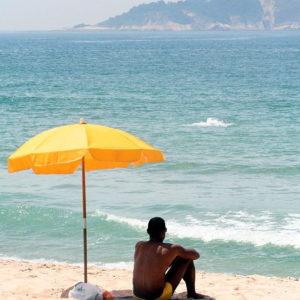As spring break starts and students sprint to their cars and head for the beach, they sometimes fail to see all the things that could go wrong. Some things to consider before heading out for spring break fun include driving, where to stay, ATM/card theft, drinking, dangers of going to the beach, sexual consent and problems with leaving the country.
When going on a road trip or traveling place to place, one must practice safe driving. To make sure everyone is staying safe it is better to take turns while driving to ensure awareness. The person who is seated in the passenger seat should make sure the driver stays awake on long distance trips. Be sure to always carry valid identification as well as vehicle registration and insurance.
To decrease one’s chances of getting lost, be sure to take a phone charger that can plug into the car. Additionally, bring a map in case the GPS isn’t working. When leaving a vehicle, be sure to hide all valuable possessions so they are not in plain sight. Locking them in the trunk is a good way to be sure they aren’t stolen.
Some people who do not have cars or who plan on drinking and want to take alternate transportation should be aware of the options. When taking a taxi, always make sure you know the pricing prior to entering the vehicle. Stay alert during the ride, whether it is a taxi or an Uber driver. To ensure nothing is stolen or left behind, keep all belongings together. Always check to see if the individual driving seems intoxicated or not. Never get in a vehicle with an intoxicated driver behind the wheel, as there are always cabs and public transportation available.
When using other modes of transportation like subways and buses, be careful of pick pockets in these crowded and cramped areas. It is much easier for a pick pocket to swipe something from a bag or pocket when there are many people bumping into each other. Some easy ways to avoid this are using a lock for backpack zippers and use an over-the-shoulder purse.
People love to travel over spring break, and they often stay in hotels. It is useful to plan out where to stay ahead of time. According to www.SafeSpringBreak.org, it is a good idea to stay in rooms above the first floor yet below the sixth floor. This is important because the first floor is easily broken into whereas the sixth floor and above are not easily accessed by firefighter ladders.
Be sure to use discretion when checking in at any hotel. Predators may be lurking in the lobby and listening in to find out where people are staying to target those who are alone. They often listen for names and room numbers, so be sure to never say these things too loud.
When staying at a hotel, it is smart to check the locks on both the doors and the windows to ensure safety. Also, identify where all fire emergency exits are and where the stairs are. Any time the room is left unattended, the door must be securely closed, and any valuable items need to be put away in case housekeeping comes through to clean the room. Take a business card before leaving the hotel in case one needs directions back to the hotel.
Always be careful of credit card/identity theft. Make sure to cover the keypad while typing in the pin of a debit card, even if no one is around or close enough to see. Also, do not lend a card and/or pin to anyone, even a close friend. The friend may not be as careful with the card as he/she should be.
Once money has been taken out of an ATM, put it away immediately. Do not walk back to the vehicle or walk away from the ATM without putting the money out of sight. Be sure to take a friend when removing cash from an ATM.
It is also a good idea to invest in a wallet that blocks out card readers. Some scammers use a device that they can put next to a wallet or purse to steal the information off of bank cards and make a counterfeit card with access to one’s bank account. This is called Radio Frequency Identification (RFID). Make sure to buy a wallet or card holders that block RFID.
If anything looks suspicious about an ATM, like a mechanism attached to the slot where the card is inserted, do not insert a card. Scammers use these devices to access people’s bank accounts when unsuspecting customers use the ATM.
Be sure to check the surroundings carefully when using an ATM. If there is anything that may be seen as suspicious such as mirrors or cameras that are out of the ordinary, go to another bank or ATM.
If you’re going to drink, be smart and drink responsibly. Establish limits both with how much alcohol to drink and personal boundaries. Watch after drinks in places where there are many people, as predators seek to disable individuals using “roofies,” or drugs that make people pass out. Avoid any open beverage sources which people can put things into at will.
Out with friends and someone starts to appear extremely woozy, confused, has difficulty standing or slurred speech? This individual needs to be taken to a safe and secure location because these are symptoms of predatory drugs. If symptoms persist or become worse, go to the hospital. Stay with a group of people to better protect against predators.
Avoid binge drinking. For women, this is usually more than four drinks in two hours and for men it’s five drinks in two hours. Don’t try to match friends drink for drink. People are built with different metabolisms. Always pace how many drinks versus how long it has been. Be aware of the strength of the different liquors that are being served to account for extra time needed to let them wear off or before drinking another. Try to eat before consuming any type of alcohol so that any alcohol consumed will not take effect as quickly.
If anyone is intoxicated and trying to drive, stop him/her. It is both extremely dangerous for the driver and others on the road. To avoid drinking and driving, make plans ahead of time to ensure transportation to and from a location.
Spring break means fun in the sun and a good time on the beach. However, many individuals fail to recognize the safety hazards involved with being in the water and under the sun. One main concern is to stay hydrated. Drink more than the recommended daily dose of water on days out under the hot sun.
To avoid sunburn, use waterproof sunscreen with at least 30SPF. Also, stay out of the sun around the time of day where UV rays are most intense. Additionally, drinking on the beach can lead to a bad sun burn and an even worse hangover, the sun maximizes the effects of alcohol. Be mindful of drinking and the rays of the sun.
Drinking in a hot tub may seem like a good idea, but the effects of alcohol are felt faster and stronger. This makes it easier for individuals to become more intoxicated and leads to dangerous situations such as drowning.
Look for a life guard prior to jumping into the water to cool off. If there isn’t a life guard on duty, then it isn’t safe to jump in. Also look for flags. The flagging system is supposed to help advise you on whether to swim or not swim in a certain location. Red warns of a strong undertow and riptides. Yellow cautions swimmers to the possibility of some undertow and possible riptides. Blue flags mean clam water and that it’s safe to swim, according to www.SafeSpringBreak.org.
In case of a sexual encounter, never try anything unless each person involved clearly gives consent. According to Merriam-Webster dictionary: consent is to give permission for something to happen or be done. Consent is something that people believe should be given freely and must be given verbally. Silence does not equal consent. Consent is not to be assumed or implied regardless of a persons’ history.
Consent cannot be given by an individual if they are under the influence or intoxicated in any manner, especially if the person has said no prior to becoming intoxicated. Avoid drugs and alcohol abuse, as these can lead to bad decision making. Before going out, make sure to set limits or make the decision ahead of time.
To avoid miscommunication, talk openly and honestly with the other person. This should not feel awkward because if it is, the individuals probably shouldn’t be trying to do this type of thing in the first place.
For those going out of the country this coming week, be sure to get familiar with the rules of the foreign country and what places to avoid. Don’t go to another country without knowing the driving rules and regulations. The laws may be different than that of the U.S.
Make sure to know the equivalent of 911 for the area you are going to. Have identification on one’s person at all times, including passports or visas.
Be sure to have an up to date passport and all necessary documentation needed to be in a foreign country. Before packing, look over the rules of what can be taken on a flight.
Also, do not bring large lump sums of cash as it may be easily stolen. Try to keep cash to a minimum if possible, and don’t bring flashy items that will attract the eyes of thieves. In some countries there is a limit to how much cash one is allowed to bring. However, no country limits the number of credit cards one can bring.
No matter where you’re going, be safe this spring break.






